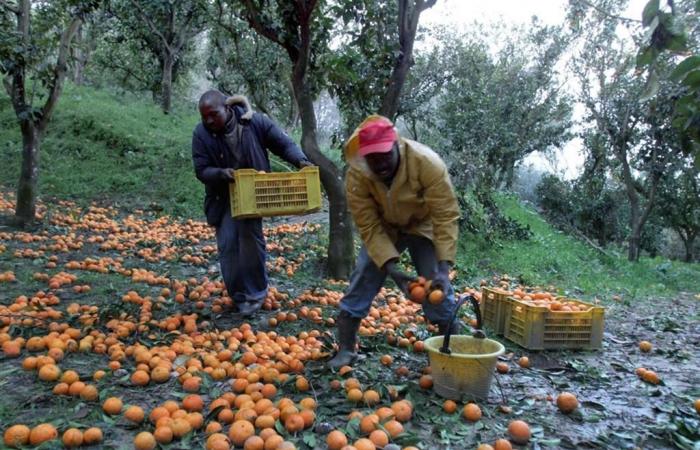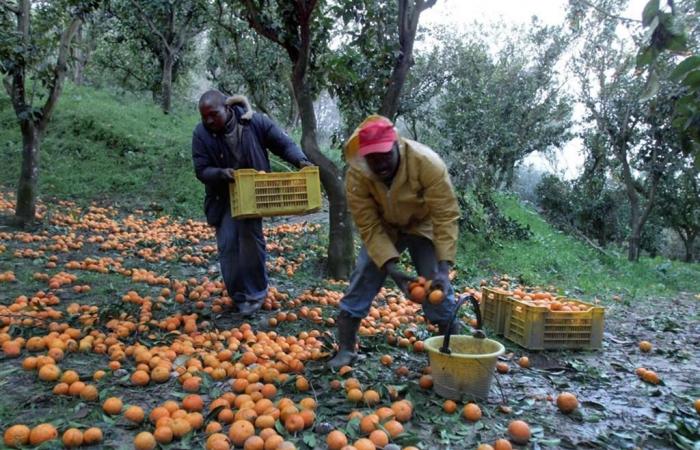Calabria is the region where the highest presence of irregular employment in Italy is recorded, with 19.6 percent of illegal workers in relation to the total employed and compared to the national average figure of 11.3%. (117,400 units) in the south.
A podium, in negative, shared with the Campaniasecond, which touches the 16.5 percentand the Sicilythird, with the 16 percent. This is the estimate of an analysis conducted by the Research Office of the Cgia (Italian General Confederation of Crafts) of Mestre based on data from 2021.
Turnover of irregular work
Amounts to 68 billion euros the annual turnover attributable to irregular work present in Italia. Il 35 percent approximately of this added value produced by the underground economy can be attributed to the southern regions. The people involved in the underground economy in our country are just under 3 million and in this case too it is the Noon the geographical distribution of the country with the highest percentage: that is, the 37.2 percent of the total.
Regional and sectoral breakdown
The analysis indicates approximately 68 billion euros the annual turnover attributable to irregular work in the country, of which 23.7 billion In the Noon, 17,3 In the Northwest, 14,5 In the center e 12,4 In the North East. In Calabria we talk about 2.5 billion euros.
Now we are also upWhatsAppdon’t miss our updates: GO TO THE CHANNEL
If we measure the percentage impact of this amount on the total regional added value, the highest share, equal to8.3 percentit is still of interest to Calabriafollowed by Campania with the 6.9 percent and from the Sicily with the 6.6 percentThe national average is 4.2 percent.
Of the 2.848.100 non-regular employed estimated at Italia from the State, 1.061.900 are located in Noon, 691.300 In the Northwest, 630.000 In the center e 464.900 In the North East. If we calculate the rate of irregularity, given by the ratio between the number of irregulars and the total number of employed people per region, the most significant presence is always recorded in the south and, in particular, in Calabria with the 19.6 percent. They follow the Campania with the 16.5 percent and the Sicily with the 16 percent. The average figure in Italy is11.3 percent.
The phenomenon, however, reports the analysis of the Cgia, is also extended to the Centre-North and has a record presence especially in the sector of personal services (housekeepers, carers, etc.). The irregularity rate in this sector reaches 42,6%In second place we see agriculture with the 16,8% and on the third the constructions with the 13,3%.
Sectors most affected
I 3 million of standard work units (AWU) present in Italia who carry out a work activity in clear violation of tax, contribution and safety regulations, “cause” a rate of irregularity of the 12.7 percent. The other services to people are the sector that “nests” the greatest number of irregulars: precisely just over a million AWUs which gives rise to an irregularity rate in this sector equal to 42.6 percent. Among the sectors most affected by illegal work we see agriculture which, according to the elaboration carried out by the Research Office of the CGIAhas an irregularity rate of 16.8 percent (205.800 ULA). Below we see the buildings with the 13.3 percent (220.200 ULA) and trade, transport, hospitality with the 12.7 percent (691.700 ULA).
TO KNOW MORE: Fight against gangmastering, attention remains high in the Piana di Gioia Tauro
The analysis also focuses on the phenomenon of exploitation and gangmastering which affects the most fragile social categories, such as people in conditions of extreme poverty, immigrants and women. Among the realities with the greatest incidence of the phenomenon we mention Gioia Tauro plain together with thePontine Marshesal Nocerino-Sarnesea Villa Literno and to Captaincy of Foggia.
The control of criminal organizations
After the economic crisis caused by the pandemic, in some areas of the country, important parts of the economy have come under the control of mafia-style criminal organizations that, in addition to massive economic investments, have used violence, threats and the seizure of documents to “win” the favor of large masses of workers, especially foreigners. The application of these coercions has transformed many pockets of the underground economy into forced labor, causing many Italians who were in vulnerable conditions to slip into this infernal circle.
Proposal from the CGIA of Mestre to overcome illegal work and gangmastering
«Stop the monopoly of a few large companies». The tragedy that occurred last week in the countryside ofPontine Marshes is certainly the result of exploitation and slavery practices practiced by agricultural entrepreneurs in that area. By exploiting the irregular status of migrants, entrepreneurs involve workers without guaranteeing regular contracts, paying low wages and triggering a series of problems related to housing, transportation and social services.
However, it should not be forgotten that these criminal behaviors are often induced, not only in the south, by the structure of the agri-food market which is often monopolized by a few large-scale distribution companies which continue to squeeze small farmers, who are forced to remain on the market to reduce the salaries of the workforce, thus fueling the gangmaster system even more.
Despite theItalia has implemented the directive UE against unfair commercial practices and below-cost sales, large-scale distribution continues to keep price lists stable despite the price increases, putting many small producers in serious difficulty.
Don’t miss our updates, follow our channel Telegram: GO TO THE CHANNEL
Finally, Cgia di Mestre recalls that Italian legislation has excluded from the scope of application the contributions of members to cooperatives and the transfers of agricultural and food products to producer organizations. This means that “those who transfer their goods to the cooperative or producer organization cannot count on the protections provided by law with respect to payment times and against sales below cost.”
Therefore, the proposal, «in addition to modifying the national law by also including these subjects among those who cannot carry out unfair commercial practices, it is necessary to encourage inspection activity, guaranteeing, at the same time, a strong increase in public investments in the transport sector and solutions temporary housing that allows these people a dignified life.”




